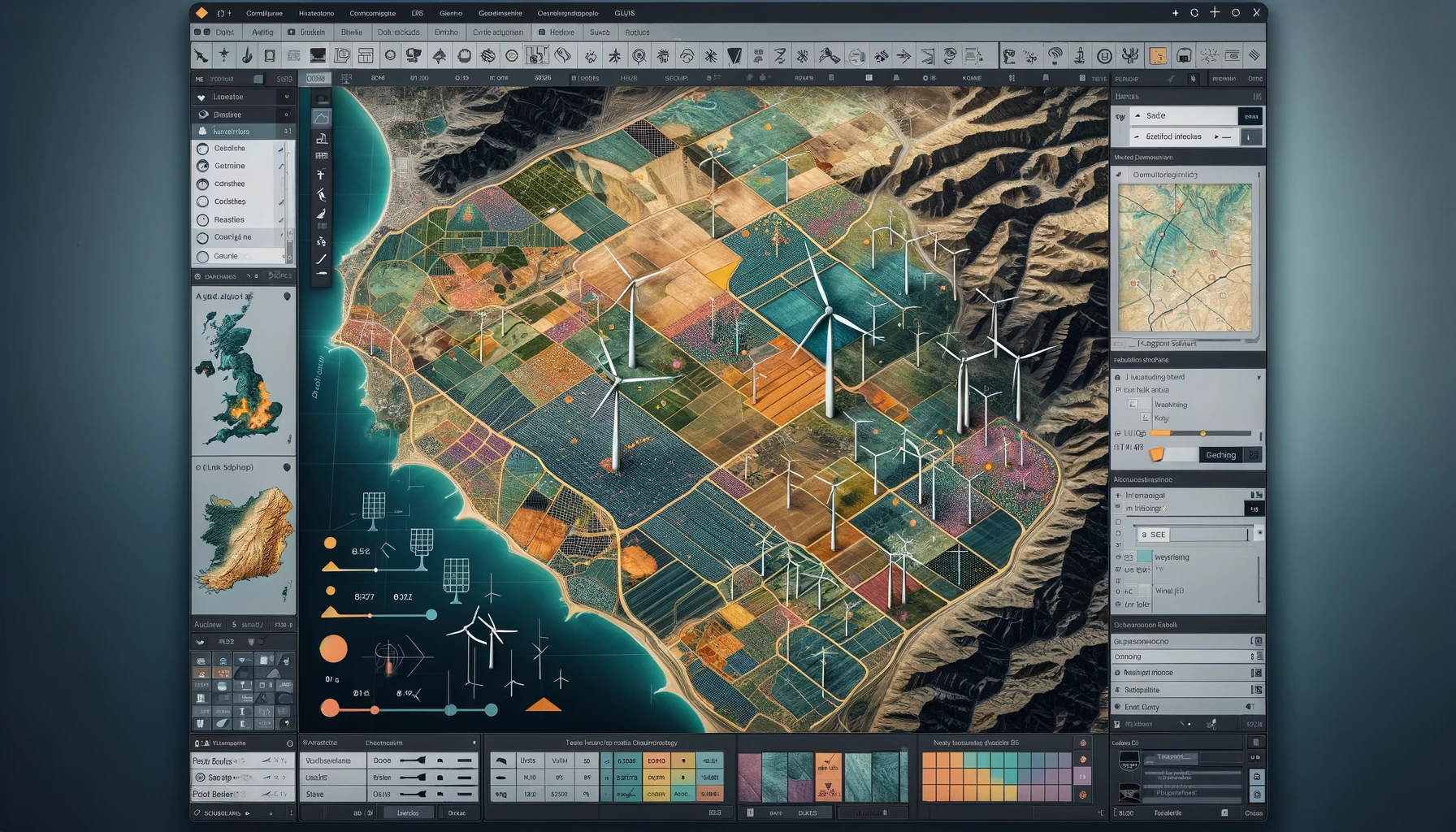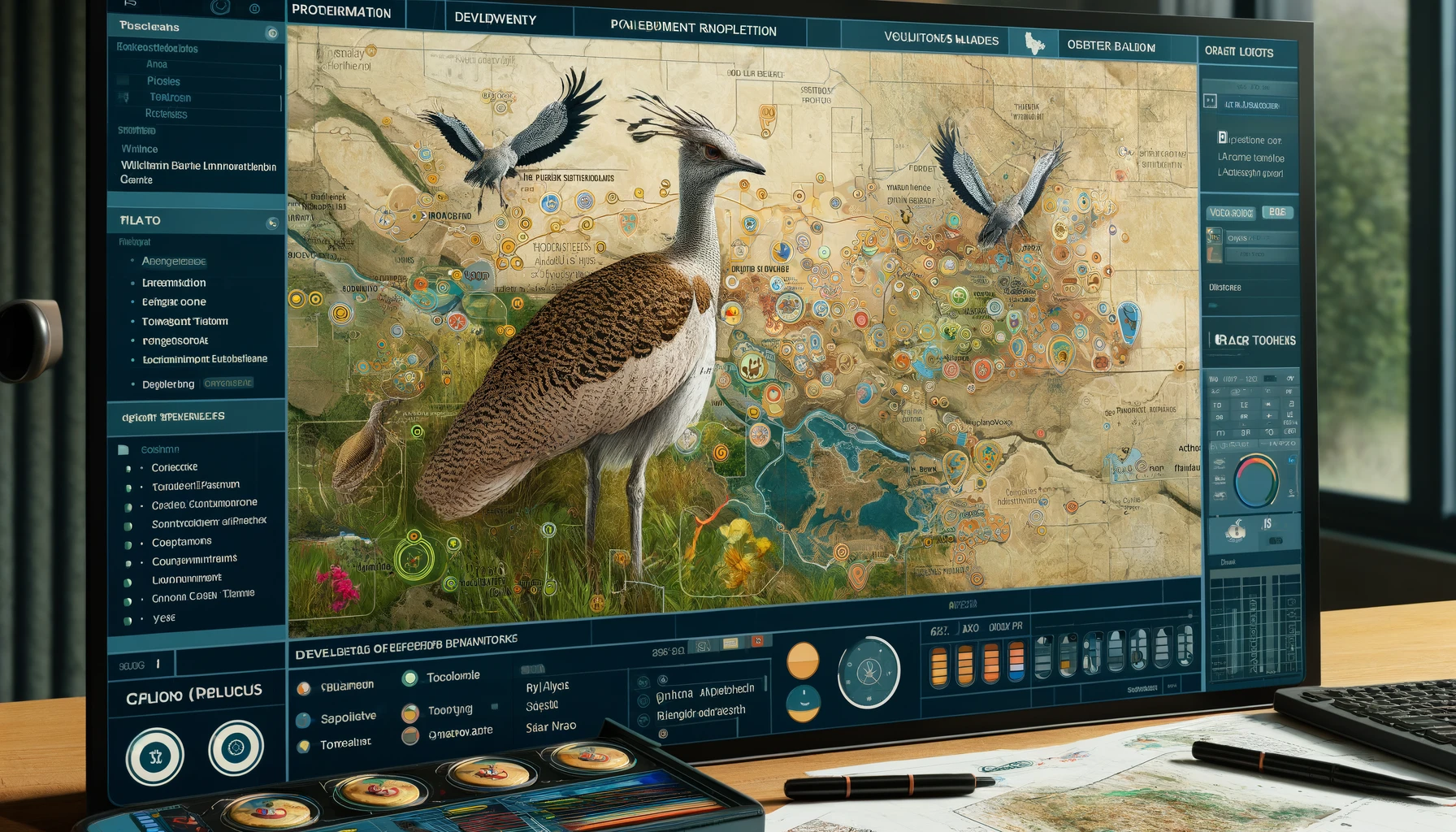Case overview
In the global quest for sustainable energy solutions, renewable developers face the essential challenge of pinpointing the best locations for energy infrastructure projects. This case study explores how a renewable energy developer collaborated with Genesis Ray to harness location intelligence and meticulously evaluate the site suitability reports for five potential sites. Leveraging advanced GIS technologies, they accessed detailed insights that were critical in making informed decisions, ultimately propelling their clean energy initiatives forward.
By integrating location intelligence into their strategic planning, the developer was able to assess various environmental, social, and technical parameters, which are crucial for the success of renewable energy projects. The comprehensive site suitability reports generated by Genesis Ray provided a deep dive into each location’s specific characteristics, such as solar irradiance levels, wind patterns, land use constraints, and proximity to existing infrastructure.
This informed approach allowed the developer to not only identify the most feasible sites but also to optimize the layout and technology configuration of their projects, enhancing both efficiency and sustainability. The use of location intelligence in analyzing site suitability reports thus stands as a cornerstone in modern renewable energy development, ensuring that each project aligns perfectly with the geographical and environmental context of its designated site.


The Brief
As the urgency to transition to renewable energy sources intensifies, developers are increasingly seeking strategic partnerships to navigate the complexities of site selection. In this evolving landscape, a leading renewable energy developer embarked on a mission to expand its portfolio of solar and wind projects. With ambitious goals and a firm commitment to sustainability, the developer recognized the critical importance of accurate site assessments and location intelligence to maximize the efficiency and viability of their investments.
The renewable energy developer faced the daunting task of evaluating multiple sites scattered across diverse geographic regions. Each site presented unique terrain characteristics, environmental considerations, and land records of rights, necessitating a comprehensive approach to site suitability analysis through advanced location intelligence techniques. The incorporation of site suitability reports became paramount, addressing the following key challenges:
Identifying Suitable Sites
- Location Intelligence: Leveraging geospatial data and advanced mapping technologies to assess the suitability of potential sites for solar and wind energy projects. Factors such as solar irradiance, wind speed, topography, and land use were meticulously analyzed.
- Environmental Impact Assessments: Utilizing location intelligence to understand environmental constraints and ensure compliance with ecological regulations.
Minimizing Risk
- Regulatory Compliance: Employing location intelligence to navigate complex regulatory landscapes and anticipate potential legal hurdles.
- Mitigating Site-Specific Risks: Using site suitability reports to identify and mitigate risks related to land conflicts, environmental sensitivities, and other site-specific challenges.
Optimizing Investment
- Maximizing ROI: Integrating location intelligence into financial models to select sites with the highest potential for energy generation and cost-effectiveness.
- Strategic Site Development: Utilizing detailed site suitability reports to plan and execute development strategies that minimize operational challenges and optimize long-term performance.
The strategic use of location intelligence and comprehensive site suitability reports empowered the developer to make informed decisions, aligning their project initiatives with environmental sustainability and economic efficiency. This approach not only enhanced the project’s feasibility but also bolstered the developer’s reputation as a leader in the renewable energy sector, adept at overcoming the intricacies of modern energy project development.

Our Approach toward Site Suitability Reports
To address these challenges, the renewable energy developer engaged Genesis Ray, a trusted provider of geospatial solutions, location intelligence, and site suitability assessments. Leveraging state-of-the-art Geographic Information System (GIS) technologies and industry expertise, Genesis Ray devised a tailored approach to assess the suitability of each site for renewable energy development. The solution included a comprehensive integration of location intelligence and site suitability reports, detailed through the following steps:
- Site Identification:
Genesis Ray collaborated closely with the developer to understand their project requirements, geographical preferences, and sustainability objectives. Through collaborative workshops and consultations, five potential sites were identified for detailed assessment, employing advanced location intelligence tools to ensure optimal selection. - Data Collection and Analysis:
A comprehensive data collection process was undertaken by Genesis Ray, gathering geospatial data related to solar irradiance, wind speed, land cover, elevation, and soil characteristics, as well as proximity to infrastructure and regulatory constraints. Advanced GIS analysis techniques were applied to this data to generate detailed spatial insights, enhancing the location intelligence of each site’s suitability for solar and wind energy development. - Suitability Modeling:
Using a multi-criteria evaluation (MCE) approach, Genesis Ray developed tailored suitability models for solar and wind energy projects. These models integrated diverse spatial datasets and applied weighted criteria, enhancing the precision of the site suitability reports. The models quantified the suitability of each site on a scale from low to high, providing actionable intelligence for strategic decision-making. - Risk Assessment:
In addition to assessing suitability, Genesis Ray conducted comprehensive risk assessments for each site, identifying potential challenges and constraints that could impact project feasibility. This included evaluating environmental risks, regulatory complexities, community engagement requirements, and market dynamics. The findings were crucial in shaping robust risk mitigation strategies, anchored by solid location intelligence and site suitability insights.
This strategic use of GIS and location intelligence by Genesis Ray provided the renewable energy developer with a deep understanding of site suitability, facilitating informed decision-making and optimizing the deployment of renewable energy resources.



The Results
The collaboration between the renewable energy developer and Genesis Ray has significantly advanced the use of geospatial solutions in renewable energy projects, emphasizing the crucial role of location intelligence in clean energy development:
- Site Prioritization: Leveraging Genesis Ray’s detailed site suitability reports, the developer obtained comprehensive insights into the most promising sites for renewable energy projects. These reports, enriched with location intelligence, provided clarity on various geographical and environmental factors, enhancing the accuracy of suitability scores. This strategic approach enabled the developer to efficiently allocate resources and concentrate efforts on sites with the highest potential for successful renewable energy deployment.
- Risk Mitigation: Through Genesis Ray’s robust location intelligence capabilities, the developer accessed tailored risk assessment that pinpointed potential challenges at each site. These assessments considered environmental, regulatory, and operational factors, allowing the developer to proactively implement targeted risk mitigation strategies. By addressing these risks early, the developer not only safeguarded the projects against unforeseen setbacks but also bolstered the projects’ resilience and viability.
- Stakeholder Engagement: The data-driven insights provided by Genesis Ray’s site suitability reports enhanced transparency and facilitated informed discussions with all stakeholders involved. This approach helped in building strong relationships with local communities, regulatory bodies, and investors. Effective stakeholder engagement, supported by reliable location intelligence, ensured that concerns were addressed, support was maximized, and the projects aligned with local development goals.
- Sustainable Development: Armed with precise location intelligence from Genesis Ray’s reports, the developer could thoroughly understand the energy potential and environmental constraints of each site. This knowledge empowered them to adopt sustainable development practices that minimized environmental impacts and integrated seamlessly into local ecosystems. The reports helped promote biodiversity conservation and enhance ecosystem resilience, furthering the developer’s commitment to sustainable practices.
This strategic collaboration showcases how cutting-edge geospatial solutions and location intelligence are transforming renewable energy development. By integrating advanced GIS technologies and analytics, Genesis Ray equipped the developer with actionable insights necessary to optimize site selection, enhance project efficiency, and drive sustainable outcomes. These capabilities are essential for overcoming the challenges of site suitability in renewable energy projects, unlocking vast potential, and fostering the growth of clean energy on a global scale.



